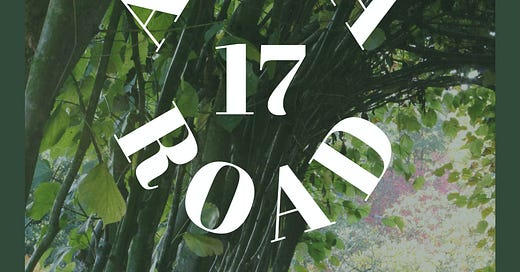XVIII
Owen reaches the patio before Maddie next speaks. Turning as if she is just behind him, he cannot fail to notice how the sun has sunk even lower, the shadows grown a little longer. There is nowhere else he needs to be, but he knows he will leave soon.
“You would never have known,” she says.
“Known what?”
“That they had that between them.”
“Florence’s secret?” Owen imagines acknowledgement from his sister. “But it wasn’t between them, was it? As a real secret it simply wouldn’t have got in the way, at least not from uncle’s perspective.”
“Do you think he guessed?”
How could Owen possibly know? Their uncle had been quiet, unassuming, limiting emotional demonstration to topics about which he felt he could be intellectually expansive: injustice, the environment, ancient history. And the private topics? Owen is unable to recall any incident which may have suggested discord between him and Florence; no raised voices after they had gone to bed, no gesticulating at the bottom of the garden when he and Maddie were out of earshot. There had been harmony — even if he suspected it was harmony on his aunt’s terms.
And yet George was far from stupid or unobservant. Might he not have noticed a packet of pills mistakenly left out one morning and then asked his wife what they were for? Or if not that, simply read the label on the box? Had Florence succeeded in being that careful, that discrete, and for such a long time? “It would have broken his heart” she had said, and if that were indeed the price potentially to be paid for the risk she was running, might she not have been indescribably vigilant, protecting her secret as jealously and as totally as she had protected the two of them? If subterfuge resided anywhere then surely it was only on her side.
“I don’t know,: Owen says. “I want to say that I doubt it, for both their sakes — but how can you be sure about something like that?”
“There are things you know, things you think you know, and things you don’t. Isn’t that right? Isn’t that how we navigate through life?”
“Along with all your binary decision points you mean?”
“When you boil it all down, is there anything else?”
Owen sits on the bench once again, glancing at his watch. Just a few more minutes. Yet he knows Maddie isn’t finished with him yet — and he suspects the house isn’t either.
“A somewhat nihilistic vision, don’t you think? What about love, emotion, belief?”
Maddie laughs at her brother’s naïvety. Owen senses her somehow encircling him.
“That’s very noble coming from you, Glen.”
He ignores her gentle barb.
“Just based on my experience, that’s all. And the choices we make, the decisions we take.”
“But whatever you may say, aren’t they still all binary? And isn’t love and hate and all that stuff also based on what you do or do not know, and how you respond to that? If I don’t believe in war or if I fear nuclear destruction I may, in consequence, decide to support nuclear disarmament. And how much I support such a cause will drive my actions: I will or will not write to my MP, go on this or that march, take direct action.” Owen says nothing, but Maddie can tell he is thinking. “What?”
“I don’t know,” he says, his stalling almost immediately proving Maddie’s point, “I think I always assumed you were less — dogmatic. Being an artist and all. I thought you were supposed to embrace ambiguity, the essence of things, their non-black-and-whiteness.”
“Yes, in theory you’re right. But only to a point. Only to the point where the veil is drawn back, when something you didn’t know suddenly becomes something you did. Or if not known, then realised, or seen… And in the realisation or the vision, you face the danger of having to deal with it.”
At the end of the garden, a squirrel scampering across the vegetable patch distracts him for a moment; then her voice brings him back.
“And that includes you.”
“Me?”
“Because whether you realise it or not — indeed, whether you like it or not — you see, know, realise things that you didn’t when you walked through the front gate about an hour ago. And all that knowledge changes what you will do, the choices you will make.”
“About what?”
“What next. Remember?”
More echo than flashback, Owen recalls their earlier exchange. He was sure the he or she had been the source of the original question — “what next?” — though it seems undeniable that any initial answers offered would certainly have been Maddie’s. The house had formed at least part of her gambit, provided the framework for her argument. He had batted related notions away, but an hour had passed and — in accordance with her theory — he now recognised things he hadn’t known before. And he can only concur with her in that new knowledge changes the questions we ask of ourselves.
“It does — and all the time,” Maddie says, intruding on his thoughts once more. “How can it not? The questions shift, become more or less relevant, more or less redundant.”
“You believe that?”
“I know it.” A pause, before she quotes back to him: “‘My experience’. What else is there?”
Owen wants to protest. He wants to object to her position by pointing out all the other factors that define what each of them did — and, in his case alone, might still do. There are platitudes he could trot out, like “no man is an island”, yet he suspects Maddie will be able to swipe these away with consummate ease, knowing she is untouchable, finally freed beyond the mundanity of it all.




